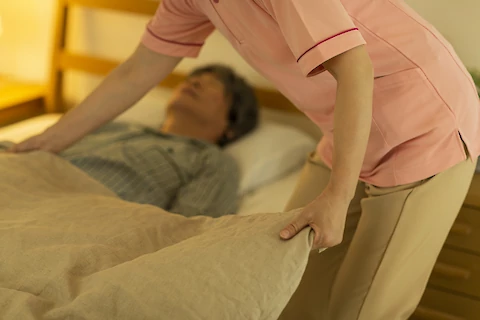
Dementia is a challenging condition that affects millions of seniors across the globe, impacting not just their memory and cognitive skills but also their sleep patterns. As a family caregiver, you understand how crucial sleep is to the well-being of your loved one with dementia. However, sleep disturbances are all too common among those affected by this condition, often leaving both the individual and the caregiver exhausted and stressed. Fortunately, there are several strategies you can use to avoid sleep disturbances and leave you both more rested.
Managing Nighttime Restlessness
One of the key aspects of dealing with sleep disturbances in seniors with dementia is managing nighttime restlessness. Encouraging regular physical activity during the day can help promote better sleep at night. Of course, consult with your loved one's doctor before beginning any type of new exercise routine. Additionally, it's essential to limit naps and reduce caffeine intake, especially in the hours leading up to bedtime. Incorporating relaxation techniques before bedtime, such as deep breathing exercises or meditation, can also promote a sense of calm and facilitate a smoother transition to sleep. Finally, make sure the sleeping environment is comfortable and safe to minimize the chances of nighttime wandering or accidents.
Creating a Soothing Bedtime Routine
Establishing a consistent and soothing bedtime routine can make relaxing and preparing for sleep easier for your loved one. Try to follow a regular sleep schedule, including a consistent bedtime and wake-up time. It's also beneficial to incorporate calming activities before bed, such as reading a book, listening to soft music, or providing gentle massages. Be mindful of limiting exposure to screens and bright lights, as they can interfere with the body's sleep-wake cycle. If your loved one is afraid of the dark or disoriented during the night, consider using a nightlight or soft lighting to provide a sense of security.
Adapting the Sleeping Environment
A suitable sleeping environment is crucial in promoting a restful night's sleep for seniors with dementia. Ensure that the bedroom is cool, dark, and quiet to create the best possible conditions for sleep. Using comfortable and supportive bedding can also significantly improve the quality of rest. Remove any potential hazards or distractions in the room, such as clutter or noise, and consider using white noise machines or blackout curtains to help block out external disturbances.
Addressing Underlying Health Issues and Medications
Sometimes sleep disturbances in dementia patients can be attributed to underlying health issues or medications. Make sure your loved one attends regular check-ups with their healthcare providers and discuss any sleep problems with the doctors. It's also essential to review medications to identify any that might impact sleep and explore alternative treatments or therapies if needed. Always consult with a healthcare professional before making any changes to medication.
When to Seek Professional Help
If the sleep disturbances become severe, it might be time to consider seeking professional help. Pay attention to signs of extreme sleep disturbances that could also affect the caregiver's well-being. If needed, explore respite care or in-home care options to support you in your caregiving journey. In some cases, specialized dementia care facilities might be necessary to ensure the best quality of care for your loved one.
Get Help Caring for Your Loved One at Night
Handling dementia-related sleep disturbances can be challenging. With the right support, however, you can improve sleep for both you and your loved one. If you live in the Greater Dallas area, including Dallas, Richardson, Farmers Branch, University Park, Lakewood Area, Plano, Frisco, McKinney, Lewisville, Coppell, Allen, Dallas/Collin County, Tarrant/Denton County, Carrollton, The Colony, Highland Park, and Addison, contact Senior Helpers of Greater Dallas today to learn more about the support we can provide, including in-home care, respite care, and overnight care that can help you get a better night's sleep while providing your loved one with the support they need.